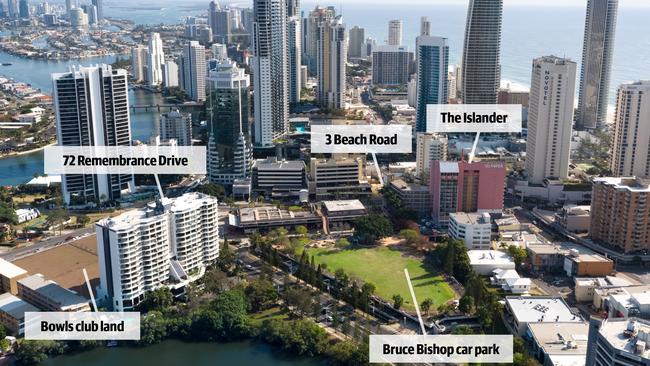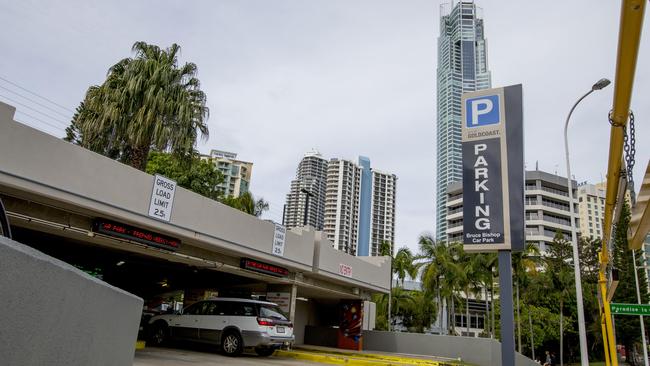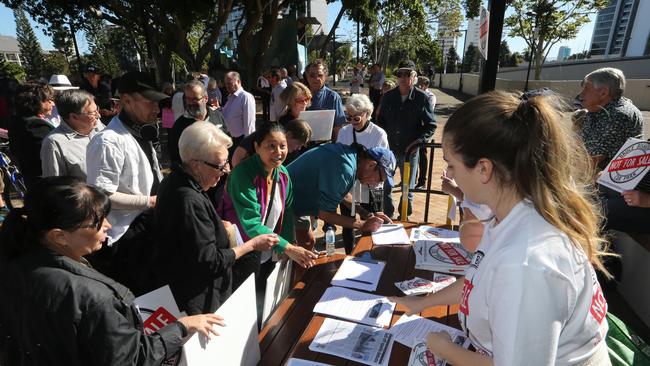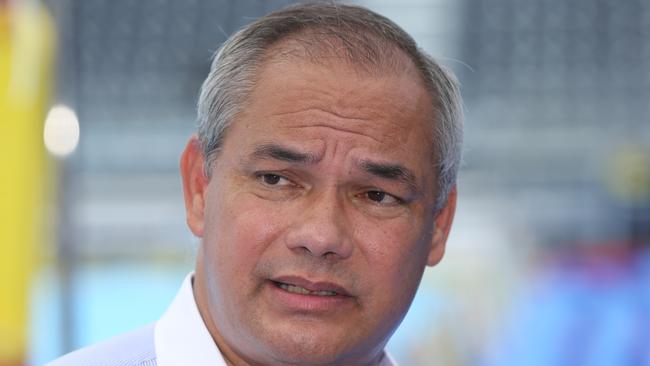Bruce Bishop car park was sold to cover $87 million budget shortfall
THE Council’s decision to sell the Bruce Bishop Car Park was taken without preamble, community consultation or any real examination of the economic or social impacts. So why did they do it?

Opinion
Don't miss out on the headlines from Opinion. Followed categories will be added to My News.
THE Council’s plans to sell the Bruce Bishop Car Park last May came as a bolt from the blue to Surfers Paradise businesses, workers, residents and ratepayers.
The decision was taken without preamble, community consultation or any real examination of the economic and social impacts that would flow from it.

The 1640-space Bruce Bishop Car Park and Surfers Paradise Transit Centre constitute one of the largest assets owned by the City.
It provides 40 per cent of all parking in central Surfers Paradise. It is full or at near capacity during special events and holidays period throughout the year.

It provides convenient and affordable parking for the Surfers Paradise workforce, residents, tourists, and the 8 million day-trippers who visit each year.
It makes more than enough money to pay for its upkeep.
It is a critically important piece of built infrastructure, vital to the economic well-being of Surfers Paradise and the Gold Coast economy.
MAYOR TOM TATE AND CEO DALE DICKSON INVESTIGATED BY CCC
It was built on land gifted to the City by a generous bequest, and construction and further land acquisition was funded largely through developer contributions and borrowings that were repaid out of car parking revenue. It had very little cost to the ratepayers.
For a town still recovering from the economic devastation caused by light rail construction, loss of conveniently located and affordable parking would be devastating.
The decision to sell was a desperate decision, in our view, with the Council casting around to find some assets to sell in order to fill an $87 million shortfall in the budget for stage 1 of the Cultural Precinct, construction of which was well under way in preparation for the Commonwealth Games.
When we examined the Council’s purported justifications for the sale decision – that the car park was never full and barely used, that it was in such appallingly bad condition that selling was the only realistic option, that it was a “lossmaker” and “money pit” etc – we found that those claims just didn’t stack up.

We wrote to the Council asking them to release more information, in the public interest.
After all, any governing authority that makes a decision should be able to justify that decision and defend it publicly.
Our approach was cordial and co-operative and we expected the Council to respond, like any conscientious governing authority should, by releasing the relevant information the public interest.
But no – the response was stonewalling and dismissive.
Requests to meet were rejected.
We were told that if we wanted any information, we had to apply for it through Right to Information.
Time limits set under legislation for responses to our requests were exceeded – one process took about 115 business days to be completed, when Council’s own performance measure on such complaints is 45 business days!
Many of the documents requested were not provided as required, including most of the key documents.
These are documents that we know exist, were readily available, are non-confidential, and are not covered by any of the exceptions under the Right to Information Act – i.e. the ordinary day-to-day record-keeping for the car park and transit centre, such as car park usage numbers, revenue and expenses, profit and loss statements, engineering and asset condition reports, including reports by Cardno engineering which had been specifically referred during debate.
The Council provided many of them to the real estate agents appointed on the sale, yet just a few days later the RTI officer advised us that the CEO claimed to have no documents responsive to our RTI application.

An extraordinary response – all of these documents should have been at the fingertips of the CEO. He is the chief record keeper for the Council under the Local Government Act.
Ultimately, as attempts at reason and open dialogue failed, we were left with no alternative but to file a Court challenge to the Council decision and to lodge a complaint to the CCC on the issues that we discovered during this arduous journey.


